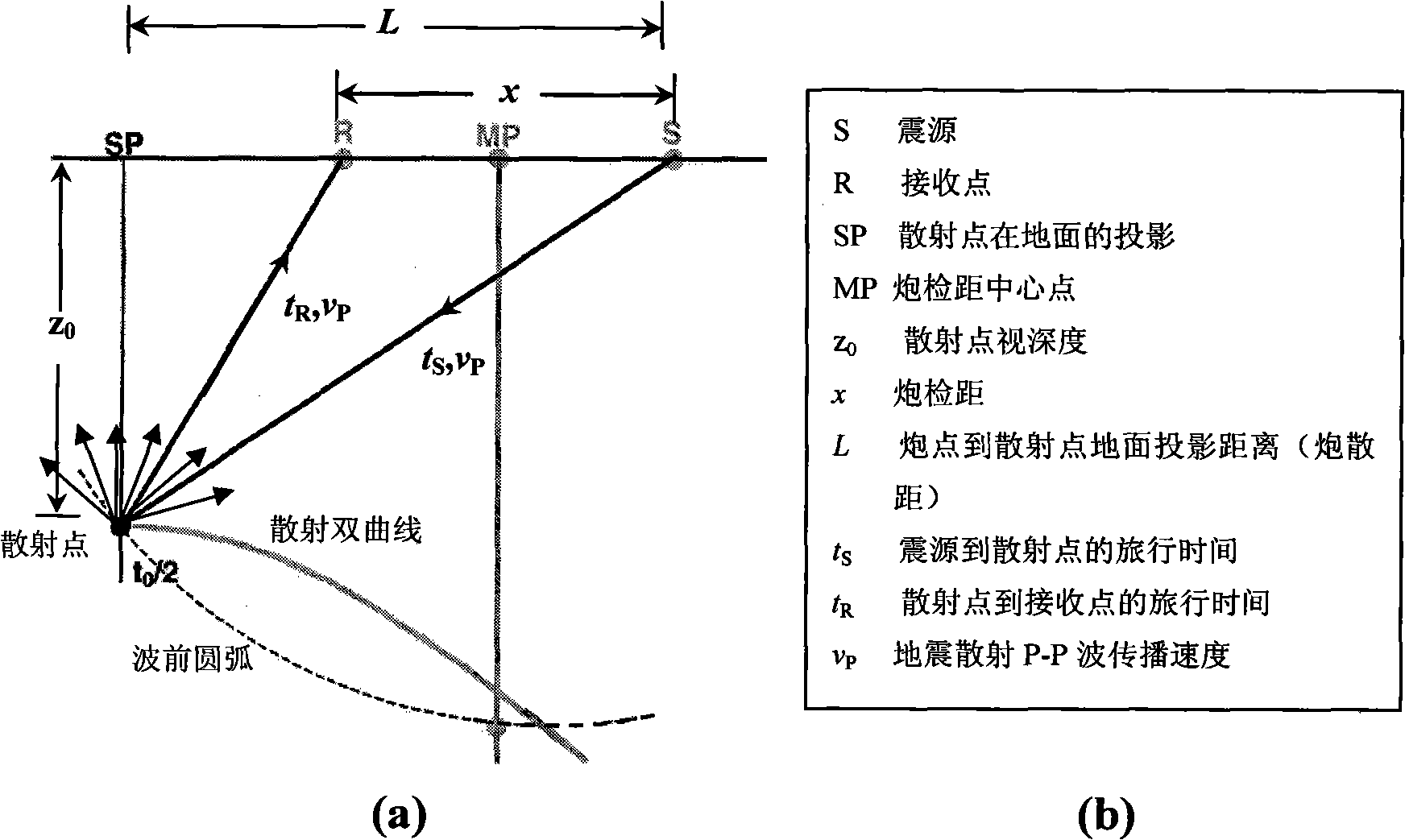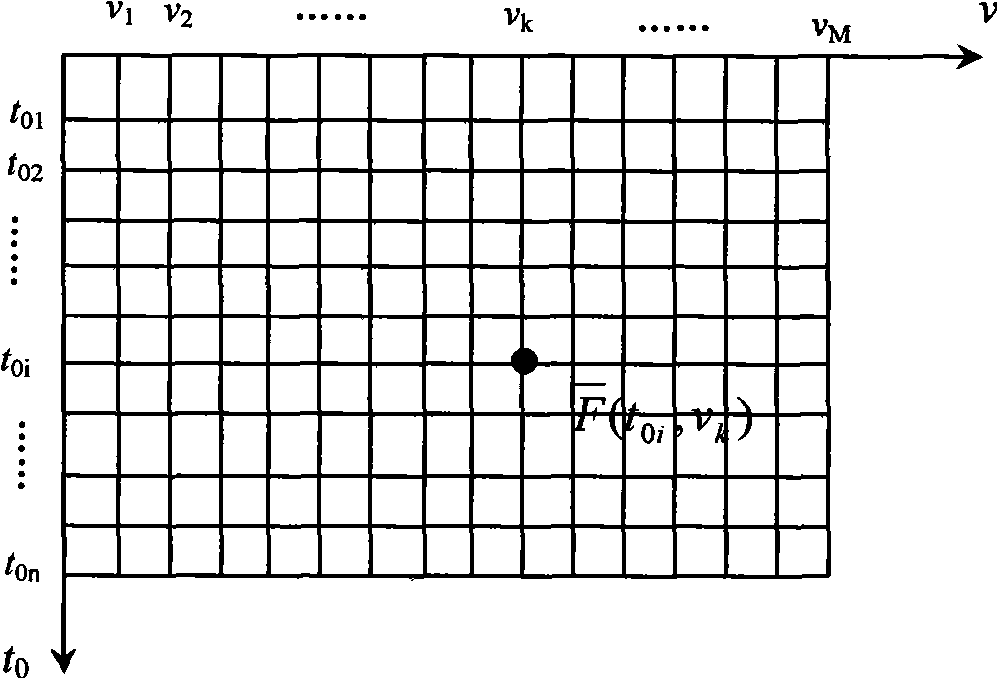Imaging velocity analysis method of seismic scattering P-P waves
A technology of imaging velocity and seismic scattering, applied in the direction of seismic signal processing, etc., can solve the problem of increasing computing cost, achieve the effect of strong focusing ability, improve signal-to-noise ratio, and reduce the influence of multiple waves
- Summary
- Abstract
- Description
- Claims
- Application Information
AI Technical Summary
Problems solved by technology
Method used
Image
Examples
Embodiment 1
[0060] Take a fault model seismic data containing 51 shots, 64 traces per shot, and 1024 sampling points per trace as an example to illustrate the implementation steps of this example:
[0061] Step 1: Read the seismic data containing 51 shots, 64 traces per shot, and 1024 sampling points per trace into the two-dimensional array F, and load the observation system parameters into the original seismic data trace header, and according to the observation system and acquisition parameters to calculate the location and coordinates of scattering points;
[0062] Step 2: According to the time-distance hyperbolic equation of the scattered wave, on the shot set, fix t 0i In the case of , choose a velocity v arbitrarily k , the speed can determine a hyperbolic trajectory, and superimpose or correlate the scattering amplitudes at each offset along the hyperbolic trajectory, and then weight and sum the energy of the same scattering point to obtain the corresponding average amplitude;
[...
Embodiment 2
[0067] Take an actual exploration seismic data containing 161 shots, 240 traces per shot, and 2000 sampling points per trace as an example to illustrate the implementation steps of this example:
[0068] Step 1: Read the seismic data containing 161 shots, 240 traces per shot, and 2,000 sampling points per trace into the two-dimensional array F, and load the observation system parameters into the original seismic data header, and according to the observation system and acquisition parameters to calculate the location and coordinates of scattering points;
[0069] Step 2: According to the time-distance hyperbolic equation of the scattered wave, on the shot set, fix t 0i In the case of , choose a speed v arbitrarily k , the speed can determine a hyperbolic trajectory, and superimpose or correlate the scattering amplitudes at each offset along the hyperbolic trajectory, and then weight and sum the energy of the same scattering point to obtain the corresponding average amplitude; ...
PUM
 Login to View More
Login to View More Abstract
Description
Claims
Application Information
 Login to View More
Login to View More - R&D
- Intellectual Property
- Life Sciences
- Materials
- Tech Scout
- Unparalleled Data Quality
- Higher Quality Content
- 60% Fewer Hallucinations
Browse by: Latest US Patents, China's latest patents, Technical Efficacy Thesaurus, Application Domain, Technology Topic, Popular Technical Reports.
© 2025 PatSnap. All rights reserved.Legal|Privacy policy|Modern Slavery Act Transparency Statement|Sitemap|About US| Contact US: help@patsnap.com



